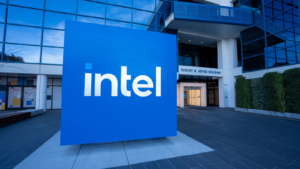
AI stocks may be bouncing back following last month’s correction, but as the potential for a broad market still looms, be aware of the top AI stocks to avoid. For one, more speculative artificial intelligence plays are likely to be hard hit in a widespread downturn.
If a rocky market compels investors to seek safer harbors, they will likely flee in droves from these risky names. Not only that, even some of the more established companies capitalizing on the generative AI trend may experience some hard turbulence if the market turns bearish once again.
Namely, higher-quality AI stocks that have become very pricey due to investor perceptions about future growth. If market and/or economic uncertainty crops up again, these names could experience moderate-to-high moves to the downside.
The following seven artificial intelligence plays should be considered AI stocks to avoid right now. Each one fits into either of these categories.
C3.ai (AI)

So far in 2024, excitement about C3.ai (NYSE:AI) has continued to wane. Shares in this enterprise artificial intelligence software company initially appeared to be in rebound mode following its quarterly earnings release in February.
But while better-than-expected results and upbeat statements from CEO Tom Siebel helped to fuel a post-earnings short-squeeze rally, since then AI stock has coughed back these gains, and then some. If that’s not bad enough, C3.ai, at $23 per share today, could be at risk of falling further towards pre-AI boom prices of around $10 per share.
Why? The preceding earnings release took place during a wave of AI mania, resulting in an overboard reaction to better-than-feared news. Following its upcoming earnings release on May 29, a more skittish market may focus on the negative aspects of the C3.ai story, like continued operating losses and uncertain road to profitability.
Advanced Micro Devices (AMD)

At first, you may find it odd for me to call Advanced Micro Devices (NASDAQ:AMD) one of the AI stocks to avoid. Yet even after dropping more than 35% since March, more downside may lie ahead. Blame it on shifting sentiment.
Earlier this year, there was plenty of hope and hype about AMD’s MI300 Instinct AI accelerator chip sales handily beating the company’s own sales forecasts. Now, however, there’s little of this hope and hype left. In AMD’s most recent earnings release, the company reported results and guidance in-line with expectations, but investors reacted negatively to the company’s latest MI300 sales forecast.
While upping it from $3.5 billion to $4 billion, remember that external forecasts had been calling for as much as $8 billion in sales. Although bullishness for AMD stock could rebound once its rollout of AI-PC chips is in full swing, for now stay away.
BigBear.ai Holdings (BBAI)

BigBear.ai Holdings (NYSE:BBAI) is a prime example of the riskier, more speculative AI stocks you should avoid with a capital “A” in the current market environment. At various times since the start of the gen AI boom in late 2022/early 2023, shares in this provider of AI-powered decision intelligence solutions has experienced bouts of meme frenzy.
The most recent of these frenzies took place during early March, at the peak of the market’s mania for AI stocks. Since then, BBAI stock has taken an outsized tumble between then and now, as investors have become increasingly cautious about the AI investing trend.
Yet while trading for less than a third of its early-March highs, downside risk remains massive, as poor fiscal performance persists. As InvestorPlace Earnings reported May 2, BigBear.ai’s revenue for the preceding quarter fell far short of forecasts, and the company reported substantially higher losses.
Beamr Imaging (BMR)

Similar to BigBear.ai, Beamr Imaging (NASDAQ:BMR) is one of the speculative AI stocks to avoid at all costs. Sure, this AI-powered video optimization technology firm appears to be going places. News of a collaboration with Nvidia (NASDAQ:NVDA) has helped to burnish its “AI rising star” reputation.
But while this Nvidia news may have helped BMR stock bolt from around $2 to as much as $34.94 per share, it has since tumbled back down to $6 per share. A further retreat may be in its future. The company remains years away from generating material earnings, much less hitting profitability.
Hence, Beamr Imaging will likely lean on dilutive funding sources to sustain operations. Back in March, the company filed a prospectus to sell up to $250 million in shares and warrants. This represents a figure many times that of BMR’s current market cap of around $87.7 million.
Intel (INTC)

On paper, Intel (NASDAQ:INTC), looks like a very promising turnaround play, thanks to two major catalysts on tap that could in theory result in a massive comeback for the chip maker. First, the company’s big bet on becoming a major chip foundry.
Second, Intel’s efforts to cash in on the AI chips boom. Yet while there are catalysts on tap, the question is when will they fully play out. As I pointed out in a recent INTC stock article, Intel CEO Pat Gelsinger says that the foundry may not become profitable until 2030.
For now, even success with AI chips may not be enough to counter foundry losses. Even success in its AI chip efforts may not be enough to counter further foundry troubles. As I argued before, stay away from Intel, at least until the stock, trading at a forward multiple in the high-20s today, becomes far cheaper.
Lemonade (LMND)

Back when it went public in 2020, Lemonade (NYSE:LMND) wowed the market, with its potential to “disrupt” the insurance industry through the use of an AI to mitigate claims losses and to automate customer service.
LMND stock eventually crashed and burned due to poor results and the 2022 bear market, but over the past year shares have experienced a 62.6% rebound. Better than expected results in recent quarters, including last quarter, has been driving this, not AI mania.
However, despite improving numbers, this is still one of the AI stocks to avoid. Even as the insuretech firm is moderately beating forecasts, losses are still expected to run high during the rest of 2024, and into 2025. If the company quarters, improvements to revenue and profitability fail to arrive, or come up short, this could sour sentiment for LMND, causing a reversal for this partial recovery.
Veritone (VERI)

Even as the AI growth trend blossomed in 2023 and 2024, Veritone (NASDAQ:VERI), which tumbled in 2021 and 2022, continued to drop like a stone. This makes sense, given the AI computing solutions company’s poor fiscal performance.
However, in March and April, VERI stock experienced a short-lived resurgence. Veritone skyrocketed from under $2 per share to as much as $7.76 per share. While not certain, given Veritone’s elevated short interest (nearly 20% of float) at the time, this may have been due to a short squeeze.
VERI stock has since fallen back to around $3.25 per share. Based on Seeking Alpha commentator Michael Wiggins De Oliveira’s downbeat take on the stock, don’t expect a recovery. Per De Oliveira, Veritone has struggled with achieving consistent revenue growth. There are also other risks like customer concentration. With this in mind, there’s little reason to “buy the dip” here.
On the date of publication, Thomas Niel did not hold (either directly or indirectly) any positions in the securities mentioned in this article. The opinions expressed in this article are those of the writer, subject to the InvestorPlace.com Publishing Guidelines.




